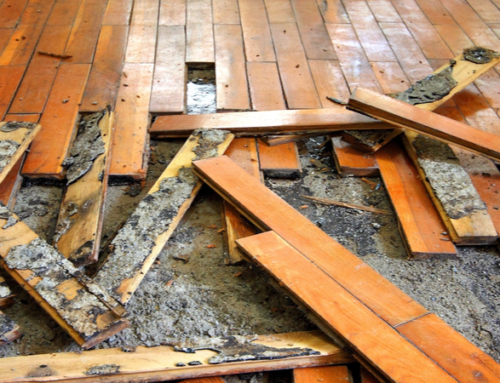Q: We bought a home about three weeks ago and did an inspection with my stepfather who is a contractor. We failed to go into the attic.
Two days after the closing, I went into the attic. To my surprise, almost all of the rafters and the wood that holds the shingles are burnt pretty severely. I have a disclosure statement stating that there was no fire damage signed by the seller.
I got another contractor to come out and give me an estimate of the repairs. Upon looking at the damage he stated that it would probably be around $50,000 to fix the roof.
What are my options here? Who is at fault? Is the real estate company at fault as well? What if the sellers don’t have this type of money?
A: It would be hard for the seller to deny he knew that the home had suffered a large fire and he never went into his own attic. You can probably find evidence that he stored items in the attic and was fully aware of the problem.
Most states require a seller to disclose to buyers material problems with the home. If your state has a specific reference to the home having been involved in a fire and the seller failed to disclose it to you, you have a pretty good shot at suing the seller for the failure to disclose this issue.
Seller disclosure laws were put into place to give buyers an opportunity to know more information about the home, particularly information that is known to the seller but that may not be readily known to the buyer.
If your seller disclosure form specifically mentions whether the home was affected by a fire and the seller failed to disclose it to you, the seller may be deep in trouble.
However, shame on you for not inspecting the house properly before you closed. Your stepfather may be a contractor but it doesn’t sound like he is a professional or licensed home inspector. A competent home inspector would have easily found this issue and alerted you to the problem.
The whole reason to hire a professional home inspector is to avoid the big pitfalls in purchasing real estate. It’s nice to know that seller disclosure laws are out there to protect buyers, but it’s much better to have this kind of information ahead of the closing so you can avoid the issues you now face.
You may have saved a few hundred bucks by not hiring a professional home inspector, but now you’re facing a $50,000 problem.
You should get a second, and maybe even a third, contractor to come out to your home to give you another estimate of what it will take to fix the problem. Prices may vary and some contractors (especially those who are a bit slow right now) may want to do more work to the home than just fix the problem left from the fire.
Finally, when you actually know what it will cost you to make the repairs, you can sit down with an attorney and decide how to approach the sellers. It’s true that if the sellers don’t have the money to pay for the fix, you’ll be left footing the bill.
But the sellers may have the money and your attorney can advise you of your legal options. If the sellers have money and assets, your state laws may allow you to recover your attorney’s fees in connection with suing the seller for their failure to disclose the problem.
April 3, 2008.




Leave A Comment